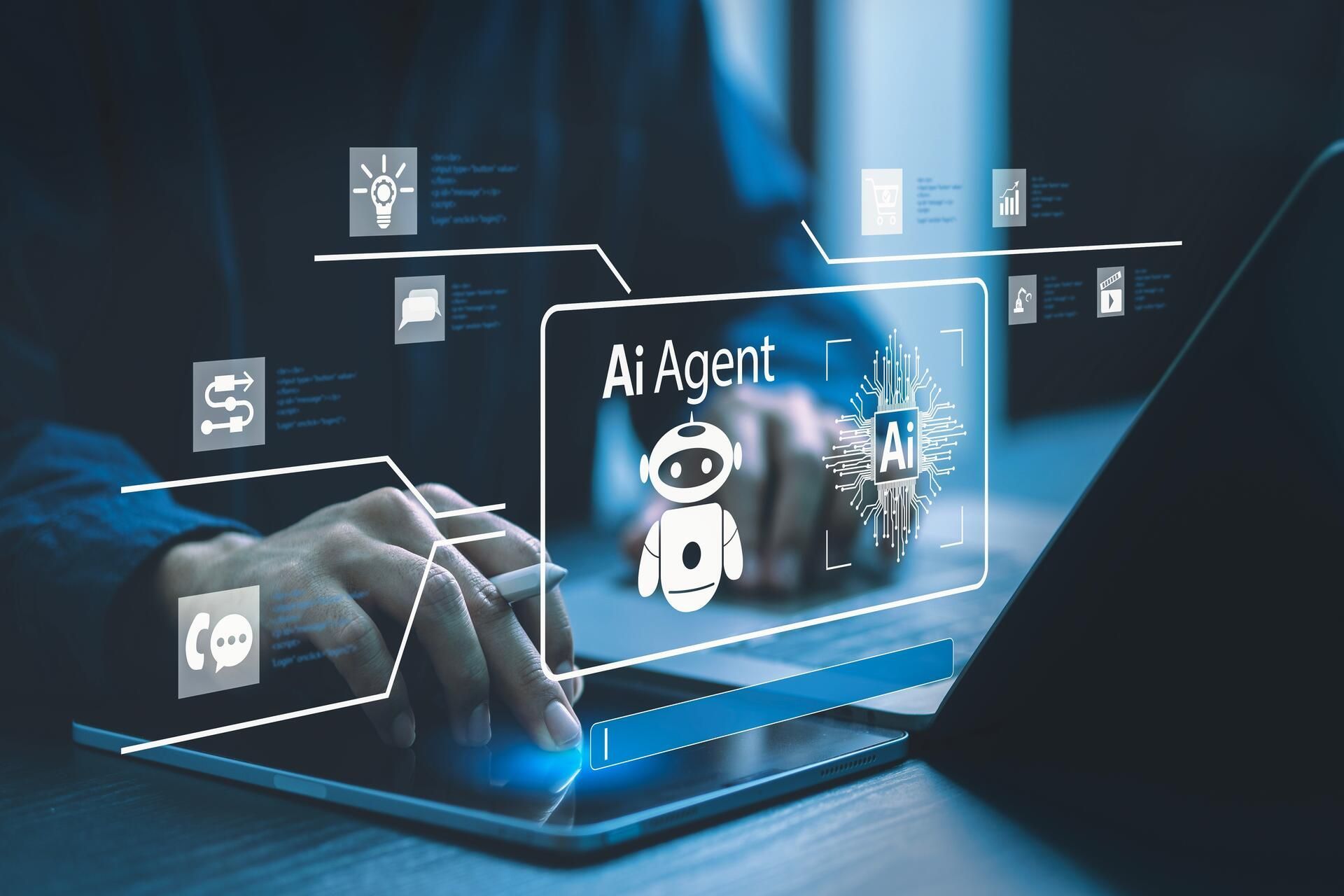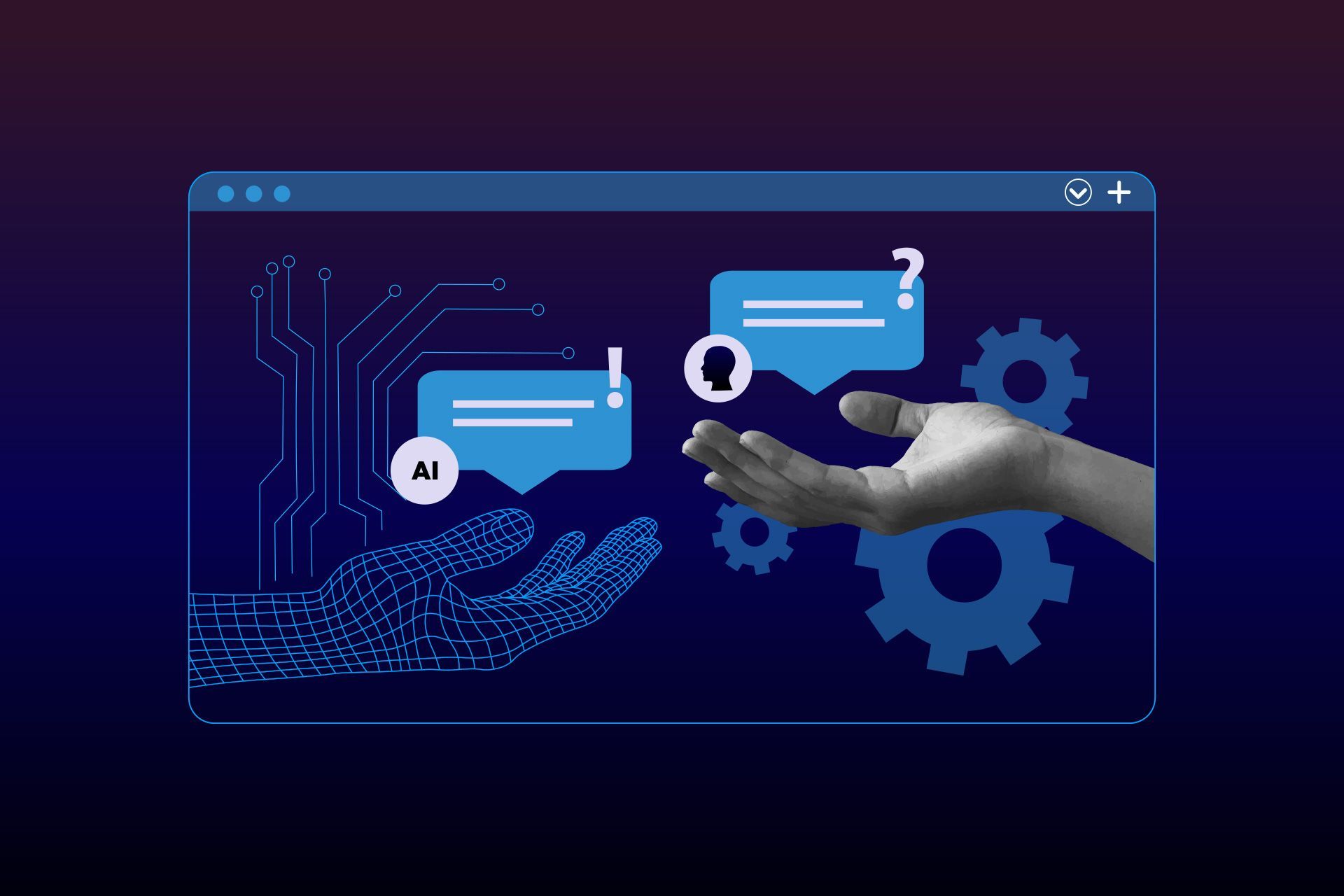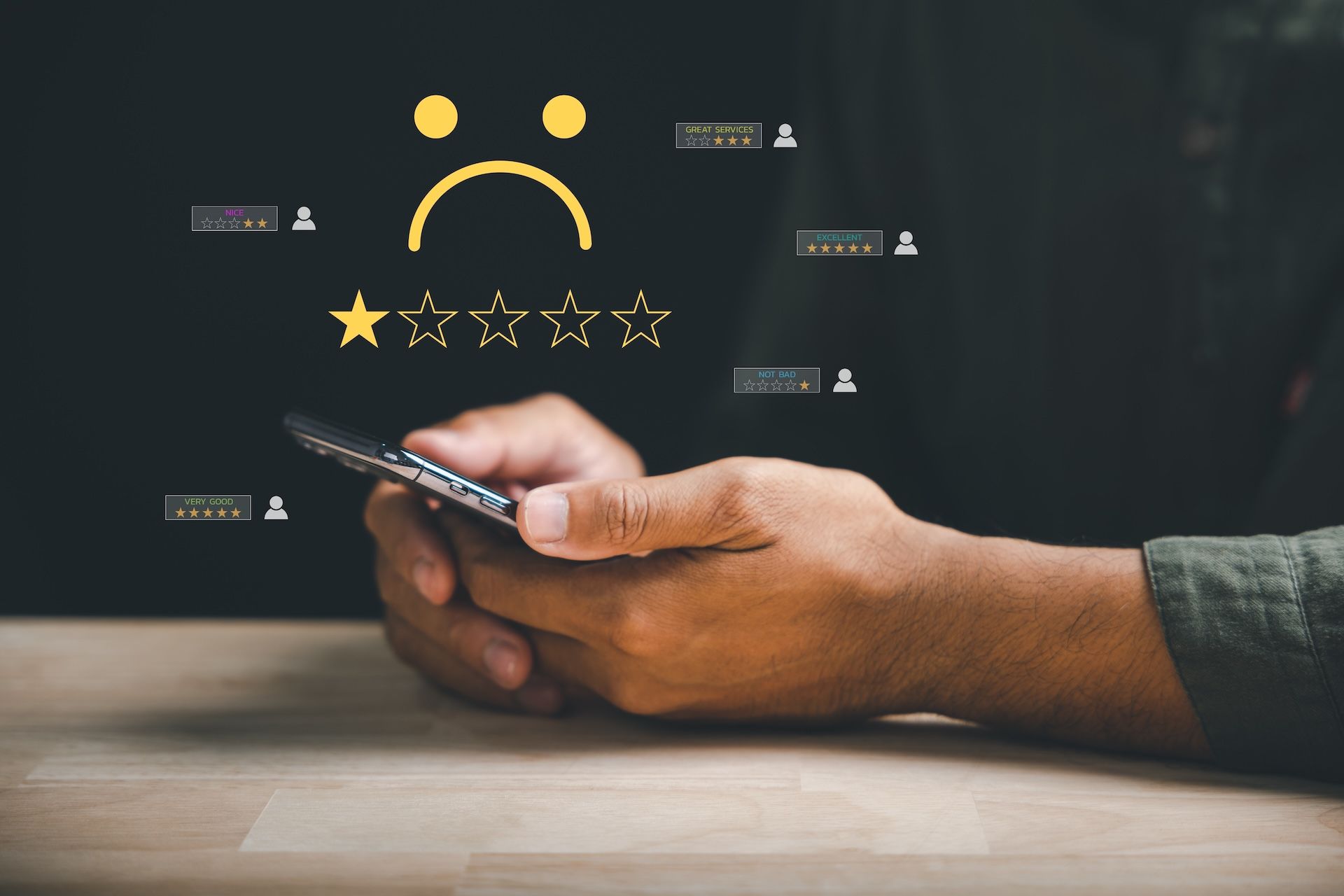What is an AI Agent? How Does an AI Agent Work?

Artificial Intelligence (AI) is changing the way we live, work, and communicate. One of the most exciting parts of AI is the AI agent. But what is an AI agent, and how does it help people and businesses? In this article, we’ll explain everything in simple terms so anyone can understand. Let’s get started!
What is an AI Agent?
An AI agent is a smart computer program that can make decisions and take actions on its own. It uses AI technology to understand tasks, learn from data, and solve problems. Think of it like a digital helper that doesn’t need you to tell it every step—it can figure things out for itself.
AI agents are built to do things just like humans would, but faster and sometimes better. They can answer questions, appointments scheduling, analyze data, and even talk to people like a real person.
How Does an AI Agent Work?
To understand how an AI agent works, think of it like this:
1. It sees what’s happening
First, the AI agent takes in information. This can be from a user (like a person asking a question) or from the environment (like data from a website or app).
2. It decides what to do
Then, the agent thinks about what the information means. It uses its “brain” (AI algorithms) to make a smart choice.
3. It takes action
Finally, the AI agent does something based on its decision. This could be sending a reply, updating a file, or making a suggestion.
All of this happens in seconds, or even less!
Types of AI Agents
Not all AI agents are the same. Here are a few common types:
1. Simple AI Agents
These follow basic rules. They don’t learn or change. For example, a vacuum robot that turns left when it hits a wall is a simple AI agent.
2. Smart AI Agents
These can learn and improve over time. They use past experiences to make better choices in the future.
3. AI Chatbots
An AI chatbot is a special kind of AI agent. It talks with people through text or voice. Many websites and apps use AI chatbots to answer questions, help with orders, or guide users.
What Makes AI Agents So Special?
AI agents are different from regular software because they can:
- Learn: They improve over time by using data and experience.
- Think: They make smart choices, not just follow commands.
- Act: They take action to complete tasks.
- Talk: Many can use natural language, just like humans.
This makes them very useful for customer service, marketing, sales, healthcare, education, and more.
AI Chatbots: Your Everyday AI Agents
One of the most common AI agents people see today is the AI chatbot. You’ve probably chatted with one while shopping online or asking a question on a company’s website.
Here’s how AI chatbots help:
- Answering questions fast: Instead of waiting for a person, you can get help instantly.
- Available 24/7: AI chatbots never sleep, so they can help at any time, day or night.
- Handling many customers at once: One chatbot can talk to hundreds of people at the same time!
AI chatbots are popular in banks, online stores, travel companies, and even schools.
Real-Life Examples of AI Agents
Let’s look at a few places where AI agents are making a difference:
1. Customer Support
AI agents can answer FAQs, guide users through problems, handle returns or complaints, and provide 24/7 customer support. They save time and improve service.
2. Healthcare
AI agents help doctors by analyzing test results or reminding patients about appointments and medicine.
3. Education
AI agents like
AI Chatbots for education can help students with homework, give quizzes, or explain lessons in a fun way.
4. Business
In offices, AI agents can schedule meetings, write reports, or analyze trends to help managers make smart decisions.
Are AI Agents the Same as Robots?
Not always! A robot is a machine that moves and does things in the real world. An AI agent, on the other hand, usually works inside a computer, app, or website. Some robots do use AI agents, like self-driving cars or smart factory machines. But not all AI agents are robots.
For example, a chatbot on a website is an AI agent, but not a robot.
What Are the Benefits of Using AI Agents?
There are many reasons why people and companies use AI agents:
- Saves time: They do tasks quickly, without needing a person to help.
- Cuts costs: Businesses don’t need as many human workers for simple jobs.
- Always learning: They get better the more they are used.
- Always available: AI agents work all day, every day—even on holidays.
- More accurate: They make fewer mistakes when doing boring or complex tasks.
Are There Any Risks?
Yes, just like any technology, there are some risks:
- Bias: If the data used to train an AI agent is unfair, it can make bad decisions.
- Privacy: AI agents may collect data, so it’s important to protect user privacy.
- Over-dependence: Some people may rely too much on AI and forget how to do things themselves.
- Job concerns: Some worry that AI agents may replace human jobs. But many experts believe AI will also create new kinds of jobs.
That’s why it’s important to use AI agents wisely and ethically.
What’s the Future of AI Agents?
AI agents are becoming smarter and more powerful every year. In the future, we might see:
- AI agents that understand emotions: These could become better companions and helpers.
- More teamwork with humans: AI agents will work side-by-side with people to get things done faster.
- Smarter chatbots: AI chatbots will understand conversations better and be more fun to talk to.
- Fully autonomous systems: Some AI agents will manage entire systems without human help.
As AI grows, agents will become a bigger part of our lives at home, school, and work.
Conclusion
AI agents are like digital brains that can think, learn, and act. They are already helping us in many ways—especially through AI chatbots that talk with people every day. As this technology improves, AI agents will keep making life easier, faster, and smarter.
Want to see how an AI agent can help your business grow? Try
ChatArm today and experience the power of smart chat!
Disclaimer: The information on this website and blog is for general informational purposes only and is not professional advice. We make no guarantees of accuracy or completeness. We disclaim all liability for errors, omissions, or reliance on this content. Always consult a qualified professional for specific guidance.






